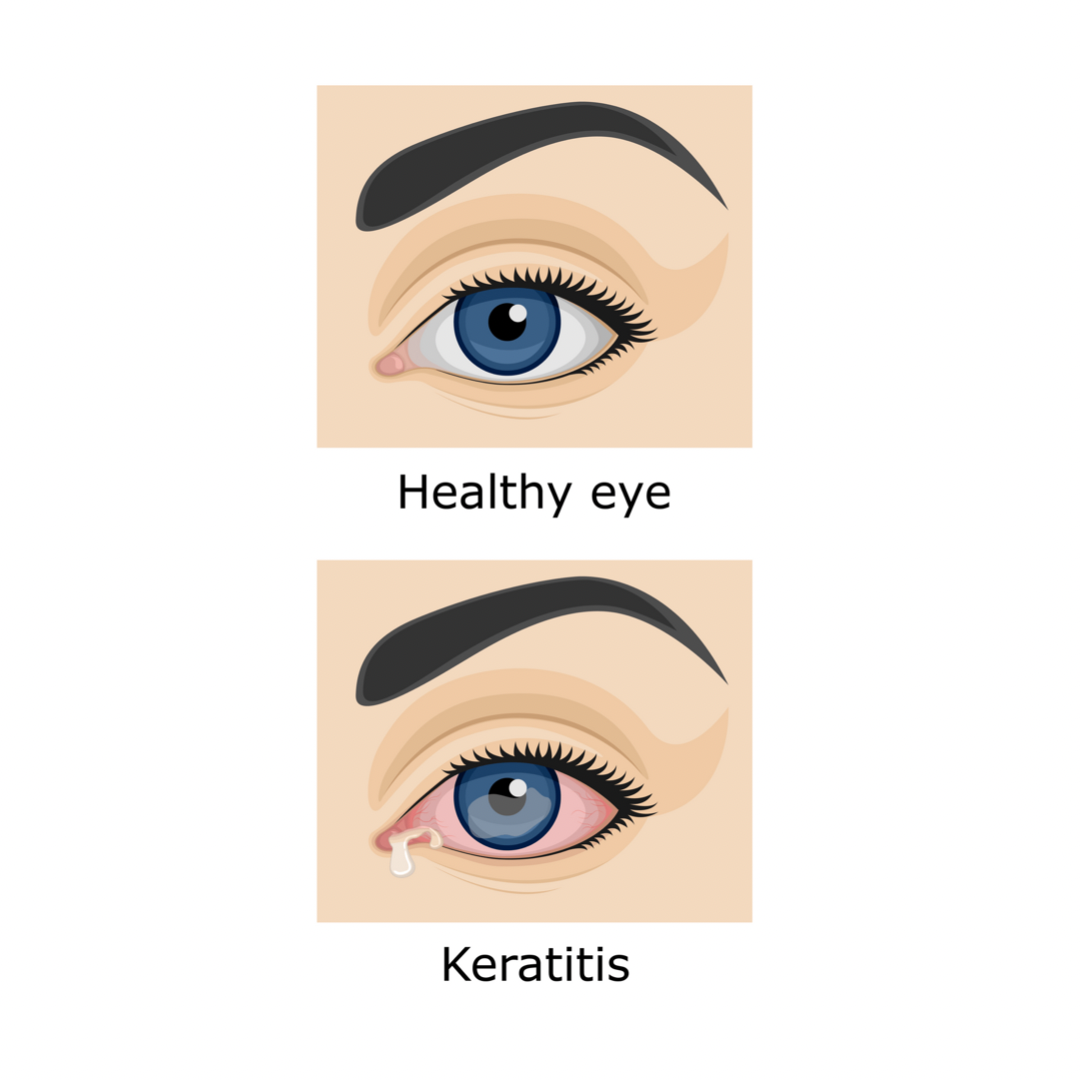Bacterial keratitis is a corneal infection and is often referred to as a ‘corneal ulcer.’ Symptoms include reduced vision, light sensitivity, pain, and excessive tearing or discharge from your eye. It is typically caused by contact lens use, especially when a person sleeps in their contact lenses. It can be also be caused by:
- Using contaminated eye medicine or other solutions in the eye
- Improper contact lens use
- Recent corneal disease
- Trauma or injury of the eye
Bacterial keratitis can affect the cornea’s surface layers, “superficial bacterial keratitis” or the deeper layers “deep bacterial keratitis.” There is usually no scar left on the cornea when superficial keratitis heals.
In severe cases of deep bacterial keratitis where the center of the cornea is affected, it may decrease vision. There are cases where you may need corneal transplantation to restore your vision.

Your ophthalmologist will perform an eye examination to diagnose a bacterial keratitis eye infection. Frequent antibiotic drops into the eye are used to treat it. In addition, you may need multiple visits to your ophthalmologist, and if you are a contact lens user, you may be asked to discontinue your contact lenses until you are healed.
Bacterial keratitis usually develops quickly. If you should experience any of the symptoms of bacterial keratitis, including sudden pain, see an ophthalmologist right away to begin treatment to prevent possible blindness.






